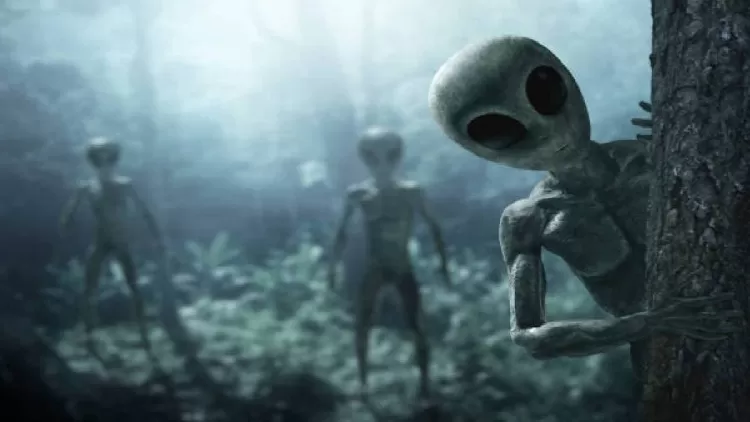Aliens and Us: A Journey Through Curiosity and Science...!!!
Aliens, or extraterrestrial beings, have captivated humanity for centuries, igniting curiosity, imagination, and scientific investigation. Though the existence of aliens has not been conclusively proven, the potential for life beyond Earth continues to intrigue scientists and the general public alike. Let's delve into the concept of aliens, the search for extraterrestrial life, and their impact on culture and science.

The Concept of Aliens
The term "aliens" refers to any form of life originating beyond Earth. This can encompass a wide range, from simple microbial organisms to advanced, intelligent civilizations capable of interstellar travel. The potential diversity of alien life forms is vast, as they could evolve in environments vastly different from those on Earth.
The Search for Extraterrestrial Life
Scientists employ several methods in the quest to find extraterrestrial life:
-
Astrobiology: This interdisciplinary field studies the potential for life in the universe by examining extreme environments on Earth and exploring other celestial bodies. Researchers study extremophiles—organisms that thrive in extreme conditions—to understand how life might exist in similar environments elsewhere.
-
SETI (Search for Extraterrestrial Intelligence): SETI focuses on detecting signals from intelligent civilizations. Radio telescopes are used to scan the skies for unusual radio signals that might indicate the presence of advanced technology.
-
Space Missions: Various space missions have been launched to explore planets, moons, and other celestial bodies for signs of life. For instance, NASA's Mars rovers are searching for evidence of past or present microbial life on Mars.
-
Exoplanet Research: The discovery of exoplanets (planets orbiting stars outside our solar system) has opened new avenues for the search for habitable worlds. Scientists use telescopes to study the atmospheres of exoplanets for potential biosignatures, such as oxygen or methane.

The Fermi Paradox
The Fermi Paradox highlights the contradiction between the high probability of extraterrestrial civilizations existing and the lack of evidence for or contact with such civilizations. Named after physicist Enrico Fermi, the paradox raises questions about why we have not yet detected any signs of alien life. Several hypotheses have been proposed to explain the Fermi Paradox:
-
The Rare Earth Hypothesis: Suggests that Earth-like planets with complex life are extremely rare.
-
The Great Filter: Proposes that there is a significant barrier in the evolutionary process that prevents the development of advanced civilizations.
-
The Zoo Hypothesis: Suggests that advanced civilizations are deliberately avoiding contact with humanity to allow for natural development, akin to a cosmic zoo.
Cultural Impact
The concept of aliens has profoundly influenced human culture, inspiring countless works of fiction, art, and media. From ancient myths to modern science fiction, the idea of extraterrestrial beings has captivated imaginations. Notable examples include:
-
Literature: Classic science fiction novels such as H.G. Wells' "The War of the Worlds" and Arthur C. Clarke's "Childhood's End" explore themes of alien encounters and their consequences.
-
Movies and TV Shows: Films like "E.T. the Extra-Terrestrial," "Close Encounters of the Third Kind," and the "Star Wars" and "Star Trek" franchises introduce audiences to a variety of alien species and interstellar adventures.
-
Art and Music: Aliens have been depicted in various forms of art, from paintings and sculptures to music and dance, reflecting humanity's curiosity and fascination with the unknown.

Scientific and Philosophical Implications
The discovery of extraterrestrial life would have profound implications for science and philosophy:
-
Biology: Understanding alien life forms would revolutionize our knowledge of biology, evolution, and the conditions necessary for life.
-
Astrobiology: Finding life beyond Earth would confirm the field's central hypothesis that life is not unique to our planet.
-
Philosophy: The existence of aliens would prompt a reevaluation of humanity's place in the universe, raising questions about our significance and the possibility of universal principles governing life.
While the existence of aliens remains unproven, the search for extraterrestrial life continues to drive scientific exploration and inspire human imagination. The possibility of discovering life beyond Earth invites us to expand our understanding of the universe and our place within it. Whether through scientific research or cultural expression, the quest to uncover the mysteries of alien life endures as one of humanity's most compelling pursuits.
What's Your Reaction?

















